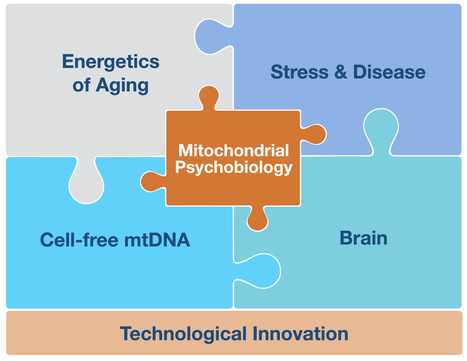Energy is the force that brings the genomic, molecular, and cellular hardware of the brain-body system to life. Energy flow regulates brain activity and gives rise to the human experience. It sustains health and underlies our ability to heal, adapt, and thrive in the face of challenges. To deliver true health care and fulfill the promise of personalized medicine, medicine needs energy. Transforming how we teach and practice medicine over the next century will require an understanding of the energetic interface between the mind, the brain, and the body. The new interdisciplinary science poised to accelerate this transformation is Mitochondrial Psychobiology.
Together with our collaborators and partners, we conduct ambitious translational studies grounded in the best of mitochondrial science and inspired by health-relevant questions. We design and deploy mitochondrial phenotyping tools to map inter-individual variation in mitochondrial biology and diversity, to understand mitochondrial plasticity over time, and to map their role in the maintenance of human health and aging.
Our goal is to discover bioenergetic principles of health and brain-body communication and to use this knowledge to build an integrative model of human health that can help transform how we teach and practice medicine.
Together with our collaborators and partners, we conduct ambitious translational studies grounded in the best of mitochondrial science and inspired by health-relevant questions. We design and deploy mitochondrial phenotyping tools to map inter-individual variation in mitochondrial biology and diversity, to understand mitochondrial plasticity over time, and to map their role in the maintenance of human health and aging.
Our goal is to discover bioenergetic principles of health and brain-body communication and to use this knowledge to build an integrative model of human health that can help transform how we teach and practice medicine.


